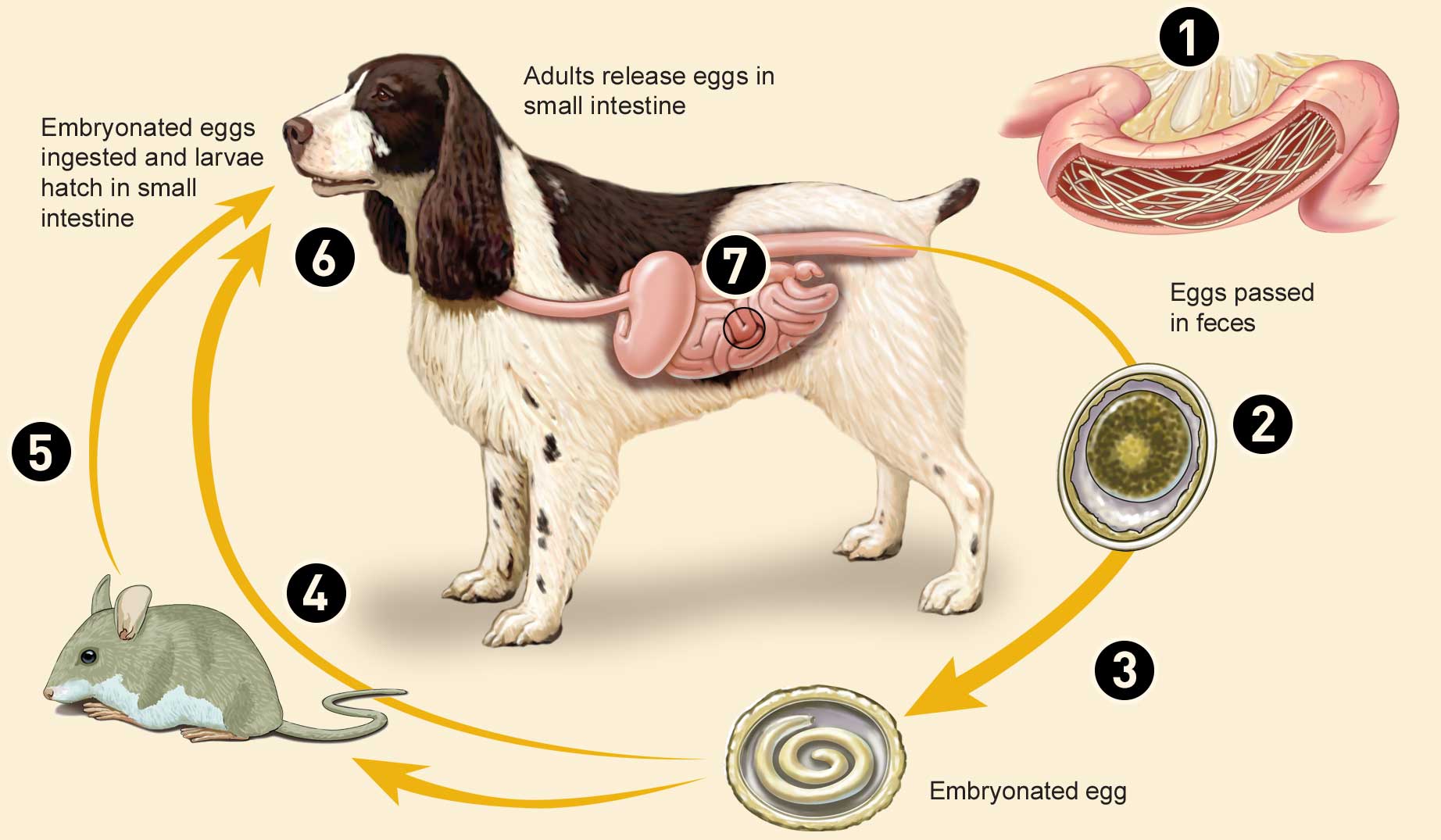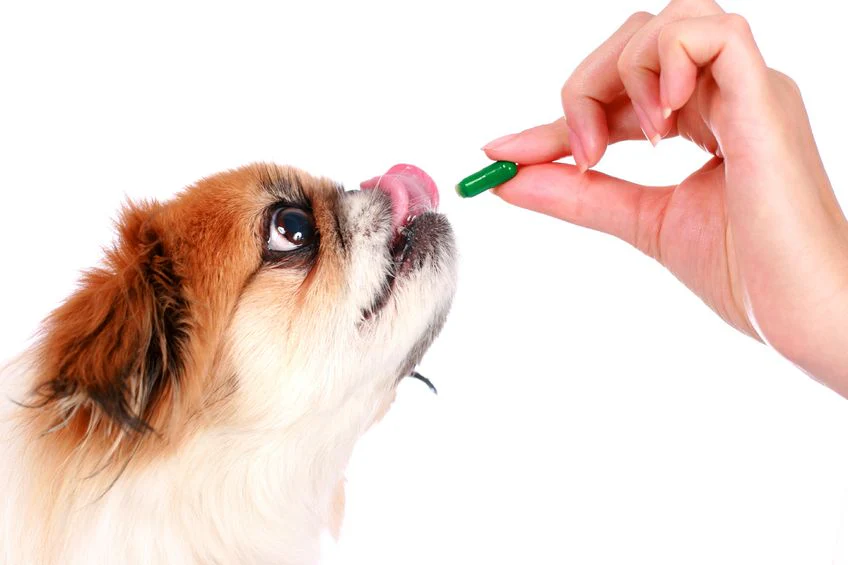Taking care of your dog’s health requires more than just love and attention; it also involves proactive steps to protect them from internal parasites. Worm infestations are one of the most common health issues in both puppies and mother dogs, and can have serious consequences if left untreated. Deworming is a critical part of their healthcare routine, helping to ensure a strong start for puppies and safeguarding the health of adult dogs. By understanding the types of worms that affect dogs, the importance of regular deworming, and how to effectively treat these parasites, you can keep your furry family healthy and happy.
Understanding Common Intestinal Parasites
To appreciate the importance of deworming, it’s essential to first understand the most common types of intestinal parasites that affect dogs. Roundworms are the most frequently seen parasites in puppies. These worms are often passed from the mother to the puppies in utero or through nursing. Roundworms can cause digestive issues, stunted growth, and, in severe cases, life-threatening blockages in the intestines. Hookworms, another common parasite, are small but dangerous, feeding on the dog’s blood and leading to anemia, especially in puppies who are particularly vulnerable due to their developing immune systems.

Tapeworms are often contracted when a dog ingests fleas that carry the parasite, or by eating infected animals. These worms may cause mild gastrointestinal disturbances but are generally not as dangerous as other parasites. Lastly, whipworms are often found in adult dogs but can still affect puppies, leading to chronic diarrhea and other digestive problems. These worms, if left untreated, can cause long-term health issues. Recognizing the symptoms of worm infestations—such as bloated bellies in puppies, diarrhea, vomiting, and weight loss—can prompt early treatment and prevent further complications.
Why Deworming is Essential for Puppies
Deworming is a crucial health measure for puppies, especially given that they are often born with worms or acquire them shortly after birth. These intestinal parasites can wreak havoc on a young puppy’s health, sapping their energy, interfering with their growth, and in extreme cases, leading to death. For example, roundworms can consume the nutrients that a puppy needs to grow, leaving them malnourished and weak.
Because of these risks, veterinarians recommend starting deworming treatments early in a puppy’s life. Puppies should be dewormed as soon as 2 to 3 weeks old, with repeat treatments every two weeks until they reach 12 to 16 weeks of age. The reason for this frequent schedule is to target worms that might be in different stages of their life cycle, as eggs, larvae, or adults. Deworming is not only about treating current infestations but also about preventing future ones, giving puppies a healthy, parasite-free start in life.
Deworming Medications for Puppies
When it comes to treating puppies for worms, there are several types of deworming medications available, each targeting specific parasites. Pyrantel Pamoate is commonly used to treat roundworms and hookworms, and it is usually administered in liquid form, making it easy to give to puppies. Fenbendazole is another popular dewormer that covers a broader range of parasites, including roundworms, hookworms, whipworms, and even some tapeworms. For puppies that may have tapeworms, Praziquantel is a highly effective treatment.

The choice of deworming medication depends on the type of worm your puppy has, which is why a veterinary diagnosis is crucial. Most dewormers are safe for use in young puppies, but the dosage must be carefully calculated based on the puppy’s age and weight to avoid potential side effects. Administering the right medication at the right time ensures that the deworming process is both safe and effective.
Deworming for Mother Dogs
It’s not just puppies that need regular deworming; mother dogs also require parasite control, particularly before breeding and during pregnancy. Pregnant dogs can pass worms to their puppies through the placenta or via their milk, making it important to keep the mother dog parasite-free before and after giving birth. Deworming the mother dog ensures that she doesn’t carry worms that could be passed to her puppies, as well as protecting her own health during a time when her body is under extra strain.
Several medications are safe for use in pregnant and nursing dogs, such as Fenbendazole, which is often recommended to prevent the transmission of worms from mother to puppies. In some cases, vets may suggest Ivermectin for broader parasite control, but this depends on the individual dog’s needs. It’s essential to follow your vet’s advice and ensure the mother dog receives appropriate treatment to maintain her health and that of her litter.
Natural Deworming Alternatives and Home Remedies
While deworming medications are highly effective, some dog owners explore natural remedies for managing parasites. Options such as pumpkin seeds, which are believed to paralyze parasites, or coconut oil, which is thought to improve gut health, are sometimes suggested. However, while these remedies may offer some benefits, they should never replace vet-recommended treatments. Natural alternatives do not have the same level of scientific backing and may not be as effective in fully eliminating a worm infestation. It’s important to consult with your vet before trying any home remedies to ensure that they are safe and complementary to conventional treatments.
How to Administer Deworming Medications
Administering deworming medications to both puppies and mother dogs is relatively straightforward, but it does require care. Most dewormers come in liquid or chewable tablet forms, making it easier for owners to give them to their dogs. For puppies, liquids are often more manageable, as they can be mixed with food or directly administered via a syringe. Ensuring the correct dosage is key, and dog owners should always follow the instructions provided by their vet.

After treatment, you may notice worms in the dog’s stool, which is a sign that the medication is working. Some mild side effects, such as vomiting or diarrhea, can occur, but if these symptoms persist, it’s important to consult your vet. Successful deworming should result in noticeable improvements in the dog’s health, with puppies becoming more energetic and less prone to digestive issues.
Preventive Measures Alongside Deworming
While regular deworming is essential, it’s also important to take preventive measures to reduce the risk of reinfection. Maintaining a clean environment is crucial. Regularly cleaning your dog’s bedding, toys, and living spaces can help minimize the chances of worm eggs lingering and reinfecting your pets. Additionally, controlling fleas in your household is key, as fleas are often the carriers of tapeworms. Applying flea preventatives to both puppies and mother dogs can significantly reduce the likelihood of parasitic infections.
Fecal testing and regular veterinary check-ups are also necessary preventive steps. Even after deworming, dogs can still be exposed to parasites, especially in areas with high worm prevalence. Routine tests help catch any new infestations early, ensuring that your dogs remain healthy.
Common Myths and Misconceptions About Deworming
Despite the importance of deworming, there are several misconceptions that can lead to inadequate care. Some believe that a dog only needs to be dewormed once, but this is far from the truth. Parasite exposure is ongoing, particularly for dogs that spend time outdoors or live in multi-pet households. Additionally, while natural remedies can be helpful in maintaining gut health, they are not a substitute for vet-prescribed deworming medications. Education about the risks of worms and the effectiveness of deworming treatments can help dispel these myths and encourage consistent care.
The Importance of Following a Lifelong Deworming Program
Deworming doesn’t stop after puppyhood or pregnancy; it’s a lifelong necessity. Adult dogs should continue to receive regular deworming treatments, usually every 3 to 6 months, depending on their lifestyle and environment. Dogs that spend more time outdoors or interact with other animals may require more frequent deworming to prevent reinfection. Keeping up with deworming ensures that your dogs remain parasite-free throughout their lives, contributing to their overall well-being and preventing the spread of zoonotic parasites to humans.
In summary, deworming is a vital part of maintaining the health of both puppies and mother dogs. Regular deworming treatments, along with preventive measures like flea control and cleanliness, help protect your furry family from the dangers of intestinal parasites. By following a consistent deworming schedule and working closely with your vet, you can ensure that your dogs stay healthy and happy, giving them the best chance for a long and fulfilling life.

After 5 years in a high pace business management role, I partnered with an e-commerce developer to start building Dog Supplies Warehouse.
Our number one goal is to make sure all products are managed and delivered to our customers door fast and accurately.

